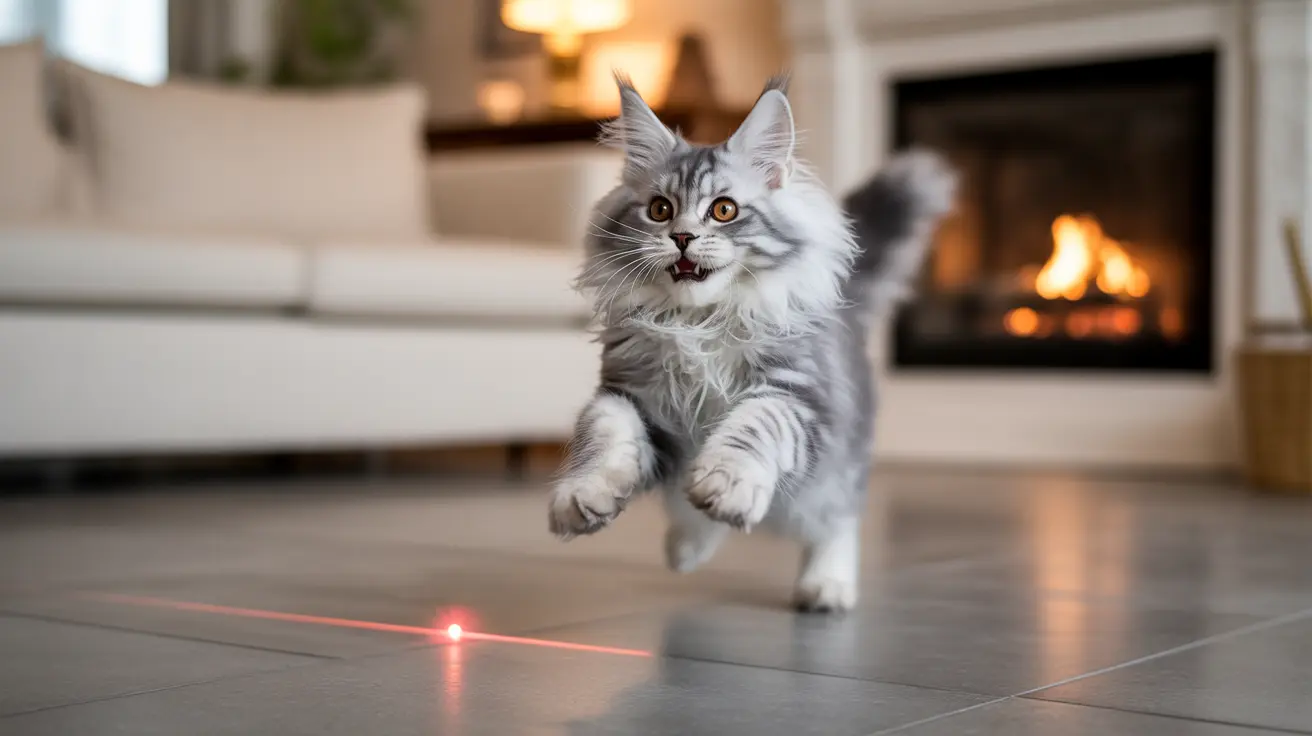Understanding the Physical Risks of Laser Pointers
The most immediate concern with laser pointers is the risk of eye damage. Even brief direct exposure to laser light can cause serious retinal burns and potentially permanent vision problems. The American Academy of Ophthalmology warns that lasers exceeding five milliwatts pose significant risks, and cats' natural protective reflexes aren't enough to prevent injury.
To minimize these risks, always follow these essential safety guidelines:
- Never aim the laser directly at your cat's eyes
- Use only pet-specific laser pointers rated at 5mW or less
- Store laser pointers securely away from children and pets
- Avoid letting your cat stare at the laser dot for extended periods
Psychological Impact on Your Cat
Beyond physical risks, laser pointers can affect your cat's mental well-being. The inability to physically catch and "kill" the laser dot can lead to frustration and anxiety, as it disrupts your cat's natural hunting instincts.
Signs that laser play might be causing psychological stress include:
- Obsessive light-chasing behavior
- Increased anxiety or aggression
- Compulsive searching for the laser dot when it's not in use
- Heightened reaction to reflections and shadows
Best Practices for Safe Laser Play
Setting Up Successful Play Sessions
To make laser pointer play both safe and enriching:
- Keep sessions brief (5-15 minutes maximum)
- Move the laser in natural, prey-like patterns
- Include physical toys in the play routine
- Always end with a catchable toy or treat
Creating a Balanced Play Environment
Laser pointers should be just one component of your cat's play routine. Incorporate various toys and activities like:
- Interactive wand toys
- Plush toys with catnip
- Puzzle feeders
- Climbing structures
Alternative Play Options
If your cat shows signs of stress from laser play, consider these alternatives:
- Feather wands and fishing-pole toys
- Remote-controlled mice
- Ball tracks and puzzle toys
- Interactive cat apps designed for tablets
Frequently Asked Questions
Are laser pointers safe for cats' eyes, and how can I prevent eye damage during play?
Laser pointers can be dangerous if pointed directly at cats' eyes. To prevent damage, always aim the laser at the floor or walls, never directly at your cat, and use only pet-specific lasers rated at 5mW or less.
Can using a laser pointer cause anxiety or obsessive behaviors in my cat?
Yes, some cats may develop anxiety or obsessive behaviors from laser pointer play, especially if they can't achieve the satisfaction of "catching" their prey. Monitor your cat for signs of frustration or compulsive light-chasing behavior.
How long should laser pointer play sessions last to keep my cat healthy and happy?
Limit laser play sessions to 5-15 minutes to prevent overexertion and frustration. Multiple short sessions throughout the day are better than one long session.
What are the best ways to end a laser pointer game so my cat feels satisfied?
Always end laser play by leading your cat to a physical toy or treat they can actually catch and grab. This provides closure to the hunting sequence and reduces frustration.
Are there safer alternative toys for cats that might get overstimulated or frustrated by laser pointers?
Yes, alternatives include interactive wand toys, puzzle feeders, plush toys with catnip, and battery-operated moving toys. These options allow cats to physically catch and interact with their toys.
Conclusion
While laser pointers can be entertaining toys for cats, they require careful consideration and proper use. By following safety guidelines, monitoring your cat's behavior, and incorporating physical toys into play sessions, you can help ensure that laser pointer play remains a positive experience for your feline friend.
Remember that every cat is different – what works for one may not work for another. Pay attention to your cat's reactions and adjust their play routine accordingly to maintain their physical and mental well-being.






